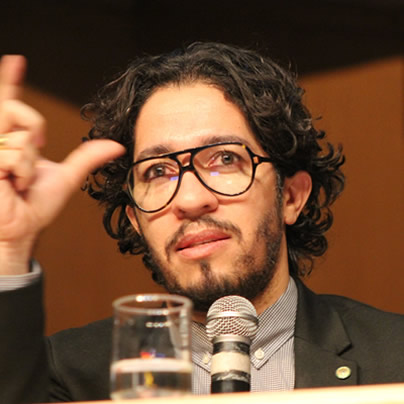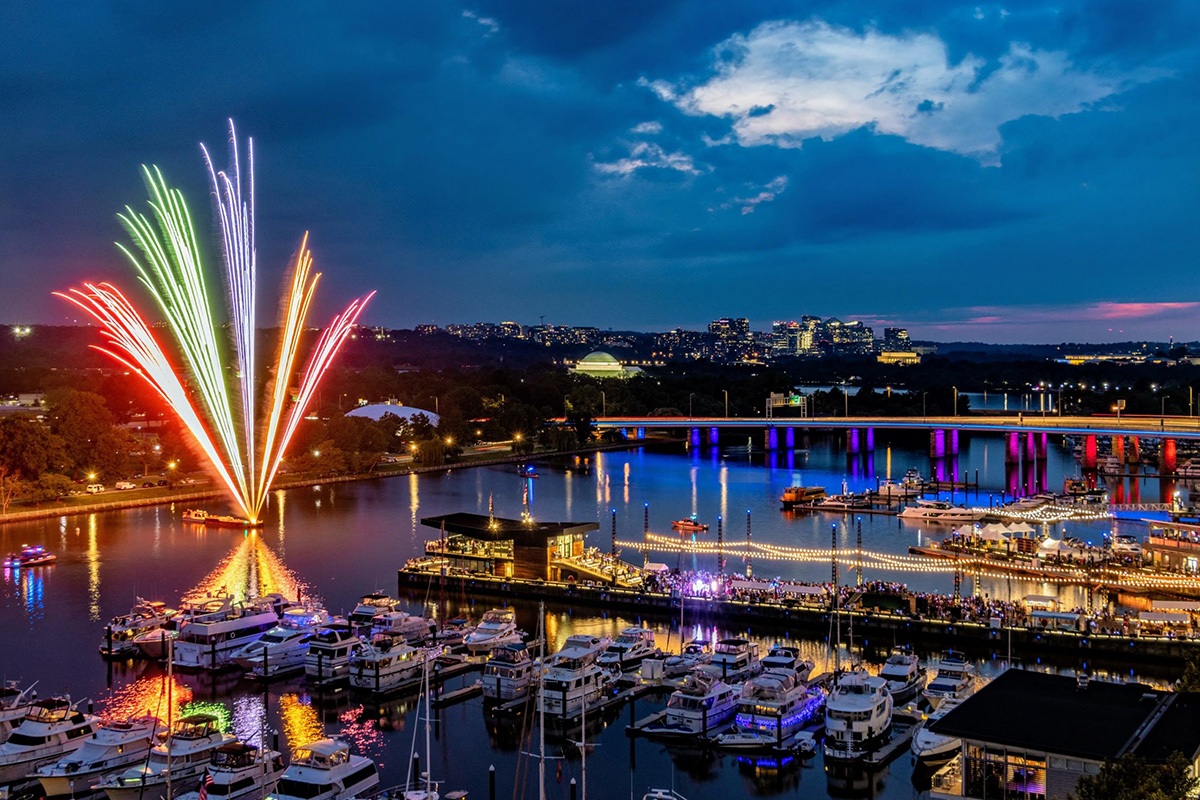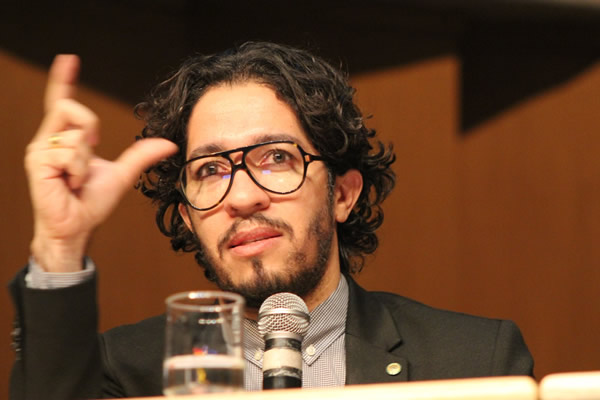News
Report documents anti-trans violence, bias in Brazil
Gay congressman said problem has ‘long history’ in country

A D.C.-based international human rights organization earlier this month released a report that documents violence and discrimination against transgender Brazilians of African descent.
The Global Rights report includes statistics from the Brazilian Secretariat of Human Rights that indicate trans Brazilians accounted for slightly more than half of the 300 reported LGBT murder victims in the country last year. The group noted an estimated 52 percent of them were people of color.
Grupo Gay da Bahia, a Brazilian advocacy group that has tracked anti-LGBT violence in Brazil for nearly two decades, said it saw a 21 percent increase in LGBT murders in the country between 2011 and 2012. The organization reported 128 of the 338 reported LGBT homicide victims in Brazil in 2012 were trans.
Grupo Gay da Bahia further noted 250 LGBT Brazilians have been killed so far this year. The Inter-American Commission on Human Rights reported 20 trans people were murdered in Brazil in August and September.
The Global Rights report also cites additional statistics that show the homicide rate among Brazilians of African descent rose 5.6 percent between 2002 and 2010, compared to the 24.8 percent decline in these crimes among white Brazilians during the same period.
The Global Rights report also documents pervasive discrimination against trans Brazilians of African descent in law enforcement and employment and in the country’s education and health care systems because of their gender identity and expression and race.
The organization says Brazilian police frequently force trans women of color to strip naked in public and use racial, transphobic and homophobic slurs against them. The Global Rights report also documents cases where authorities transport trans suspects and detainees in the trunks of police cars and other confined spaces.
It also cites a researcher who documents anti-trans discrimination in Brazil that concluded an estimated 90 percent of trans women in the country are functionally illiterate due to discrimination they experienced in the Brazilian education system. A 2012 study from the Latin American School of Social Sciences, which is an inter-governmental initiative that UNESCO founded in the late 1950s, found roughly 51 percent of Brazilians of African descent are functionally illiterate.
“With a reality marked by multiple forms of discrimination, the LGBT community in Brazil has struggled to ensure that the human rights to life and public policies reach these groups,” Naiara Leite of the Odara Black Woman’s Institute in the city of Salvador said during a hearing on violence against trans Brazilians of African descent that the Inter-American Commission of Human Rights held in D.C. on Oct. 29. “Over the last few years, the Brazilian LGBT rights movement has been greatly concerned with the excessive increase of murders and violence against gays, lesbians, bisexuals and most importantly with the increase in violence against trans people.”
Brazil is among the 15 countries in which same-sex couples can legally marry.
Then-President Fernando Henrique Cardoso in 1997 created what became known as the Secretariat for Human Rights. Brazil in 2003 became the first country in the world to establish a government ministry specifically charged with promoting racial equality.
Brazilian Congressman Marco Feliciano in March became president of the Commission for Human Rights and Minorities in the lower house of Brazil’s Congress amid controversy over anti-gay and racist statements he posted to his Twitter account. Gay Congressman Jean Wyllys and other commission members resigned in protest of Feliciano’s election and formed a separate human rights caucus that lacks legislative authority.
The Commission for Human Rights and Minorities last week approved a measure that would suspend the National Council of Justice ruling in May that opened the door to same-sex marriage in South America’s largest country. Commissioners also backed a proposal that seeks to hold a national referendum on gay nuptials and rejected a bill that would have extended tax and legal benefits to same-sex couples and their dependents.
“If there is a country in the world that has made efforts in combating racial discrimination it is Brazil,” Carlos Quesada of Global First said during the Inter-American Commission on Human Rights hearing. “In spite of these efforts to promote human rights, the reality in the country is different.”
João Guilherme Maranhão of the Brazilian Ministry of Foreign Relations defended his country’s LGBT rights record during the hearing.
He noted Brazil and Uruguay were the first countries to introduce an LGBT rights resolution to the United Nations in 2007.
The Organization of American States during its 2008 general assembly adopted an anti-LGBT violence resolution that Brazil introduced. Maranhão noted to the commission it has subsequently been renewed and expanded.
“The situation of violence faced by transsexuals and transvestites in Brazil is an issue that merits the state’s attention,” he said.
Wyllys, who represents the state of Rio de Janeiro in the Brazilian Congress, told the Washington Blade earlier this month that discrimination against trans people of African descent has “a long history in Brazil.”
“The trans population is less educated and the most vulnerable to experience sexual and police violence,” he told the Blade during an interview from Brasilia, the country’s capital.
Wyllys added he feels President Dilma Rousseff has responded “shamefully” to the problem.
The Global Rights report specifically calls upon Rousseff to condemn “all incidents of discrimination, violence and human rights violations” against trans and other LGBT Brazilians of African descent. It also calls upon her government to develop a comprehensive plan to address the aforementioned issues.
The organization also urges Brazilian lawmakers to ban anti-LGBT discrimination and violence.
“We need more political and public discourse to increase understanding,” he said.
District of Columbia
LGBTQ budget advocates fight for D.C. resources in a tough fiscal year
‘Trying to preserve life-saving services’ amid $1 billion cut

The months and days leading up to June are especially busy for LGBTQ Washingtonians. For one group, the DC LGBT Budget Coalition, which works year-round to ensure LGBTQ residents are represented and financially supported by the D.C. government, this time of year is their Super Bowl. Beginning in April, the D.C. Council and Mayor’s Office hold budget hearings for the next fiscal year.
With D.C.’s budget now under review, the Washington Blade spoke with Heidi Ellis, coordinator of the DC LGBT Budget Coalition, about the group’s top priorities and their push to ensure continued support for queer communities.
“The LGBTQ Budget Coalition was founded in 2020 at the height of the pandemic, as a way for the community to work together to advocate for key funding and policy changes,” Ellis said. “We recognized we were stronger together. A lot of groups are often pitted against each other for resources and dollars. This coalition was founded out of a need for unity. Since then, we’ve successfully advocated for more than $20 million in dedicated LGBTQ investments.”
In addition to coordinating the coalition, Ellis is the founder and CEO of HME Consulting & Advocacy, a firm that helps build coalitions and advance policy initiatives that address intersectional issues in the LGBTQ community. One of its most powerful tools, she explained, is direct outreach through community surveys.
“We actually do community surveys to see what people need and what’s top of mind,” Ellis said. “Of course, we also pay attention to the broader political landscape — like the current threats to HIV funding. That helps us prioritize.”
Because the coalition is comprised of more than 20 organizations across various sectors —healthcare, housing, community organizing — Ellis said its diversity enables it to connect grassroots needs to potential policy solutions.
“Our coalition includes service providers, community groups, health and housing advocates-folks who are deeply plugged into what’s happening on the ground,” she said. “They help determine our direction. We know we don’t represent every queer person in D.C., but our coalition reflects a wide range of identities and experiences.”
The insights gathered through those surveys ultimately inform the coalition’s annual budget proposal, which is submitted to the Council and mayor.
“That’s how we got to our FY26 priorities,” she said. “This year, more than ever, we’re fighting to protect what we’ve already secured — funding and policies we’ve had to fight for in the past. We know there’s concern around this budget.”
One of the challenges this year is that the D.C. government’s operating budget and some of its legislation must be approved by Congress. With a projected decline in tax revenue and a Republican-controlled Congress that has historically opposed LGBTQ funding, the Coalition has had to think strategically.
“Even before the situation on the Hill, the CFO projected lower revenue,” Ellis said. “That meant cuts to social programs were already coming. And now, with the $1 billion slashed from D.C.’s budget due to the continuing resolution, we’re not only fighting for D.C.’s budget and autonomy, but also trying to preserve life-saving services. Our message is simple: Don’t forget about queer people.”
This year’s proposal doesn’t include specific dollar figures. Instead, the Coalition outlines five funding priority areas: Healthcare, Employment & Economic Equity, Housing, Safety & Community Support, and Civil Rights.
Why no exact amounts? Ellis said it’s because not all solutions are financial.
“Some of our asks don’t require new funding. Others build on existing programs-we’re asking whether the current use of funds is the most effective. We’re also proposing policy changes that wouldn’t cost extra but could make a real difference. It’s about using what we have better,” she said.
When drafting the proposal, the Coalition tries to prioritize those with the most pressing and intersecting needs.
“Our perspective is: If we advocate for the most vulnerable, others benefit too,” Ellis said. “Take LGBTQ seniors. Some may have done well in life but now face housing insecurity or struggle to access affordable healthcare. Many in our coalition are elders who fought on the frontlines during the AIDS epidemic. They bring critical historical context and remind us that Black and brown communities bore the brunt of that crisis.”
“I love our coalition because it keeps us accountable to the moment,” she added. “If we center those most marginalized, we can make an impact that lifts everyone.”
In addition to healthcare and housing, safety remains a top concern. The Coalition has fought to maintain funding for the Violence Prevention and Response Team (VPART), a city-supported group that includes MPD, community-based organizations, and the Mayor’s Office of LGBTQ Affairs. VPART responds to crimes affecting the LGBTQ community and connects victims to legal, healthcare, and housing services.
“We’ve pushed to make VPART more proactive, not just reactive,” Ellis said. “The funding we’ve secured has helped survivors get the support they need. Cutting that funding now would undo progress we’re just beginning to see.”
At the end of the day, Ellis emphasized that this process is about far more than spreadsheets.
“A budget is a moral document,” she said. “If we’re not represented, you’re telling us our lives don’t matter at a time when we need protection the most. When people can’t get food, medicine, housing — that has a devastating impact. These are vital services.”
The DC LGBT Budget Coalition is urging residents to support a letter-writing campaign to D.C. Council members and the mayor. You can send a letter here: https://actionnetwork.org/letters/fully-fund-dcs-lgbtq-communities
Read the full FY26 budget proposal here: https://drive.google.com/file/d/1bTrENnc4ZazJTO6LPrQ3lZkF02QNIIf1/view
Arts & Entertainment
Washington Blade’s Pride on the Pier returns bigger than ever with two-day WorldPride celebration

The Washington Blade’s Pride on the Pier will be extended to a two-day celebration in honor of WorldPride coming to D.C. this year. Taking place on Friday, June 6 and Saturday, June 7 at The Wharf, this year’s event promises more entertainment, more community, and more pride than ever before — all set against the stunning waterfront backdrop of our nation’s capital.
With the addition of Friday, the party kicks off at 3 p.m., with the inaugural WorldPride Boat Parade at 7 p.m. As an Official WorldPride Partner event, the boat parade will feature 30 decorated boats parading along the Washington Channel. For information on signing up for the boat parade contact Stephen Rutgers at [email protected].
Saturday’s signature Pier Party kicks off at 12 p.m., featuring a drag show, DJ’s, streaming of the WorldPride Parade, and the iconic Fireworks Show Presented by the Leonard-Litz Foundation — one of D.C. Pride’s most anticipated spectacles.
“We’re expanding Washington Blade Pride on the Pier to reflect the excitement and momentum building for WorldPride in D.C.,” said Blade publisher Lynne Brown. “It’s a celebration of our community’s progress and a powerful reminder of the joy and visibility Pride brings to the heart of our city.”
Now in its seventh year, Washington Blade Pride on the Pier extends the city’s annual celebration of LGBTQ visibility to the bustling Wharf waterfront with an exciting array of activities and entertainment for all ages. The District Pier will offer DJs, dancing, drag, and other entertainment. Alcoholic beverages will be available for purchase for those 21 and older.
Pride on the Pier is free and open to the public, with VIP tickets available for exclusive pier access, hosted bars, and private viewing areas for the boat parade and the fireworks show. To purchase VIP tickets visit www.prideonthepierdc.com/vip.
Friday VIP: 5-9 p.m., enjoy an air-conditioned lounge, private bathroom, cash bar and complimentary drink.
Saturday VIP Session #1: 2-5 p.m., enjoy an air-conditioned lounge, private bathroom, catered food, and an open bar.
Saturday VIP Session #2: 6-9 p.m., enjoy the air-conditioned lounge, private bathroom, catered snacks and dinner, and open bar with a front-row view of the fireworks.
Event Details:
📍 Location: District Pier at The Wharf (101 District Sq., S.W., Washington, D.C.)
📅 Dates: Friday, June 6 & Saturday, June 7, 2025
🛥️Boat Parade: 7 p.m. (June 6). 🎆 Fireworks Show: 9 p.m. (June 7)
🎟️ VIP Tickets: www.PrideOnThePierDC.com/VIP
Event sponsors include Absolut, Capital Pride, DC Fray, Infinate Legacy, Heineken, Leonard-Litz Foundation, Mayor’s Office of LGBTQ Affairs, Relish Catering, Washingtonian, and The Wharf. More information regarding activities will be released at www.PrideOnThePierDC.com
Maryland
Md. schools plan to comply with federal DEI demands
Superintendents opt for cooperation over confrontation

By LIZ BOWIE | Deciding not to pick a fight with the Trump administration, Maryland school leaders plan to sign a letter to the U.S. Department of Education that says their school districts are complying with all civil rights laws.
The two-paragraph letter could deflect a confrontation over whether the state’s public schools run diversity, equity, and inclusion programs that the Trump administration has called illegal. The Baltimore Banner reviewed the letter, which was shared by a school administrator who declined to be identified because the letter has not yet been sent.
Maryland school leaders are taking a more conciliatory approach than those in some other states. Education leaders in Minnesota, New York, Colorado, Oregon, Vermont, and Wisconsin said they will not comply with the federal education department’s order, the demands of which, they say, are based on a warped interpretation of civil rights law.
The rest of this article can be found on the Baltimore Banner’s website.
-

 Opinions4 days ago
Opinions4 days agoIt’s time for new leadership on the Maryland LGBTQIA+ Commission
-

 The White House4 days ago
The White House4 days agoWhite House does not ‘respond’ to reporters’ requests with pronouns included
-

 Noticias en Español5 days ago
Noticias en Español5 days agoINDIGNACIÓN: ¡El transfeminicidio de Sara Millerey en Colombia nos cuestiona como sociedad!
-

 Arts & Entertainment4 days ago
Arts & Entertainment4 days ago‘Gay is Good’ Pride Pils Can Celebrates Frank Kameny’s 100th Birthday for WorldPride in D.C.











